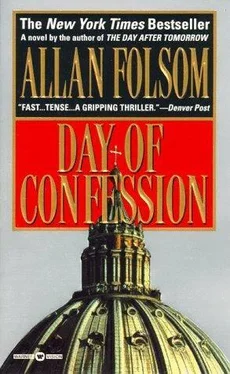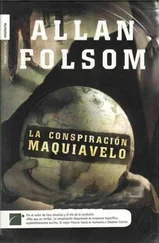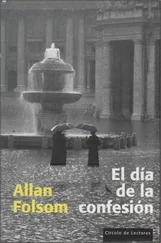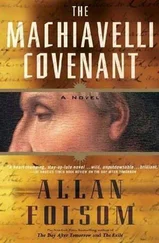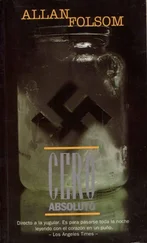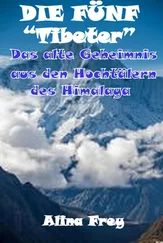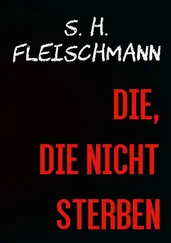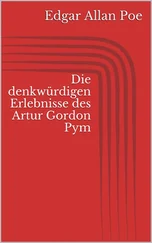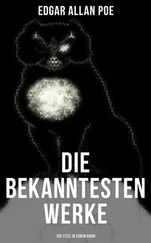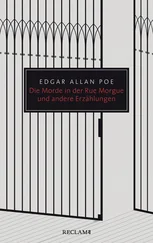'Father-?'
Still nothing.
To his right was a narrow hallway. There was a door halfway down and one at the end. Both were closed. Taking a breath, he put his hand on the knob to the first door and turned it.
'Father?'
The door swung open to a bedroom. It was little and cramped, with a small window at the back. The bed was made. A phone was on a small table beside it. That was all.
Turning, Harry started out, then he saw a cell phone on the floor next to the bed. The phone Father Bardoni 'always has with him'?
Suddenly Harry was aware of his own presence. Something felt very wrong, as if he didn't belong there. Stepping out of the room, he turned ever so slowly to the other door. What was there? Everything in him told him to leave right then. Walk away. Do anything but open that door.
But he couldn't.
'Father Bardoni,' he said again.
Silence.
Reaching for his handkerchief, he put it around the knob.
'Father Bardoni,' he said loud enough to be heard on the far side of the door.
No reply.
Harry could feel the sweat on his upper lip. The pound of his heart. Slowly he turned the knob. There was a click at the latch and then it opened. He saw the worn white tile of a bathroom floor and then the sink and a corner of the bathtub. Reaching up with his elbow, he pushed the door open the rest of the way.
Father Bardoni sat in the tub. He was naked. His eyes open, staring.
'Father?'
Harry stepped forward. His foot touched something. The priest's black-rimmed glasses were on the floor. Harry's eyes came back to the tub.
There was no water in it.
'Father?' he said under his breath, as if he hoped for a response of some kind. All he could think of was that the priest had started to take a bath and had had a heart attack or seizure of some kind before he'd had a chance to run the water.
One more step forward.
'OH, GOD!'
Harry's heart shot into his mouth, and he backed away quickly, staring wide-eyed in horror. Father Bardoni's left hand had been cut off at the wrist. There was hardly any blood at all. Just a stump where the hand used to be.
Milan. Same time.
Roscani saw the runways of Linate Airport below them and at the same moment felt the helicopter begin to descend. Information had come at him in a rush even as he had left Lugano; more was coming in now. Castelletti and Scala, in the seats behind him, were alternately talking over the radio and compiling notes.
Curled in Roscani's hand was the piece he'd been waiting for, a brief but very telling fax from INTERPOL headquarters in Lyon, France. It read:
French Intelligence has determined Thomas Jose Alvarez-Rios Kind is not in Khartoum, Sudan, as previously believed. Current whereabouts unknown.
Immediately Roscani had an ARREST AND DETAIN order sent out from Gruppo Cardinale headquarters in Rome to all police agencies throughout Europe. Additionally, Thomas Kind's most recent photograph had been rushed to the worldwide media along with a brief, declaring Kind as a fugitive wanted by Gruppo Cardinale in connection with both the murder of the cardinal vicar of Rome and the bombing of the Assisi bus. The part about the bus had come to Roscani the moment he'd suspected Kind. It was his trademark, known to police and intelligence agencies worldwide, which he used time and again when he was in a position of employing trigger men instead of doing the job himself. It was simply 'kill the killer' – let the man or woman do the job and then get rid of him or her as expeditiously as possible, leaving no channel back to Kind himself or to those who had hired him.
It was the reason for the Spanish Llama pistol found at the scene of the burned bus. Kind had put a killer onboard to get rid of Father Daniel and then he'd blown up the bus to eliminate the killer and leave no trace back. The trouble was the gunman's timing was off and it hadn't worked. But the gun and the blown bus together pointed right at Thomas Kind.
And now, with information Castelletti and Scala were getting from Milan, the police there were bringing things to a fast closure. Aldo Cianetti, the fashion designer found murdered on the Como-to-Milan section of the Autostrada, had been onboard the last hydrofoil from Bellagio and seen talking with a woman wearing a large straw hat – a woman a young Bellagio policeman recalled as having both an American passport and accent – and had left the boat with her when it had docked in Como.
Meanwhile, investigators in Milan had moved out in a grid pattern from the street near the Palace Hotel where Cianetti's dark green BMW had been found. A short distance away was Milano Centrale, Milan's main railroad station. Time of death had been estimated at sometime between two and three in the morning. And police canvassing ticket sellers on duty at the station between two and five a.m. had found an outspoken middle-aged female railroad employee who had sold a ticket to a woman in a large straw hat just before four in the morning. The woman's destination had been Rome.
Woman? It had been no woman, it had been Thomas Kind.
There was a roar and light bump as the helicopter touched down. And then the doors were opened, and the three policemen were ducking under the rotor blades and running across the tarmac toward the chartered jet that would take them to Rome.
'The SCV 13 diplomatic plates are what we thought,' Castelletti shouted as they ran. 'One of the low-numbered plates assigned to cars chauffeuring the pope or high-level cardinals. No one plate is designated to any person in particular. SCV 13 is currently assigned to a Mercedes which is away from the Vatican grounds being serviced.'
The Church.
The Vatican.
Rome.
The words pierced Roscani's mind. He heard the roar of jet engines and felt himself pushed back into his seat as the aircraft hurtled down the runway. In twenty seconds they were up and airborne, with the sound of the landing gear closing into the fuselage beneath them. What had begun with an investigation into the assassination of the cardinal vicar of Rome was returning there, full circle.
Loosening his seat belt, Roscani plucked the last cigarette from its tattered pack, put the empty pack back in his jacket pocket, then stuck the cigarette in his mouth and looked out. Here and there the sun glinted off something on the ground, a lake or a building, as all of Italy seemed to bask under a cloudless sky. It was an ancient land. Beautiful and serene, yet trampled endlessly by scandal and intrigue that operated on every level. Was any land or history free of it? He doubted it. But he was Italian, and the country beneath him his. And he was a policeman, charged with enforcing its laws and seeing justice done.
He saw Gianni Pio, his friend and partner and godfather to his children, as he was taken from his car, drenched in his own blood, his face shot away. Saw the bullet-riddled body of the cardinal vicar of Rome, and the burned hulk of the Assisi bus. Remembered the butchery done by Thomas Kind in Pescara and Bellagio. And wondered what justice meant.
Yes, the crimes had been committed on Italian soil, where he had the power to do something about them. But inside the Vatican walls he had no authority at all. And once his fugitives were behind them, there would be nothing he could do but turn his evidence over to Gruppo Cardinale's prosecutor, Marcello Taglia. Once he did, justice would no longer be his. Instead, it would belong to the politicians. And, in the long run, that would be the end of it. He remembered well Taglia's words about their investigation into the assassination of the cardinal vicar, warning of 'the delicate nature of the whole thing and the diplomatic implications that could rise between Italy and the Vatican'.
Читать дальше
